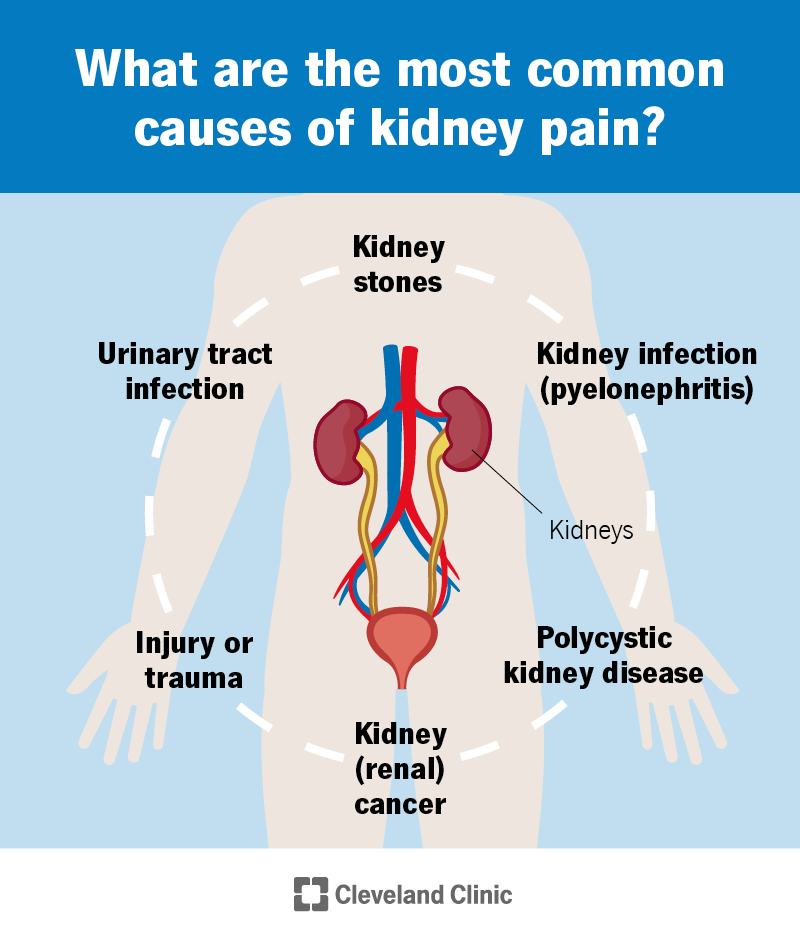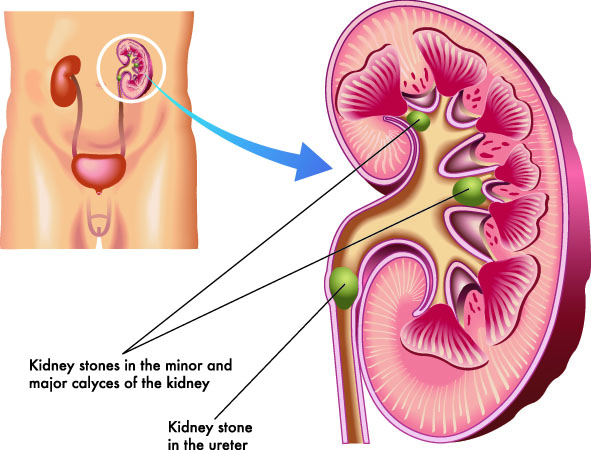Kidney Stones vs UTI: How to Determine and Deal With Each Problem Effectively
Wiki Article
Discovering the Manifestations and Causes of Kidney Stones in Contrast to Urinary Tract Infections: A Thorough Guide
The exploration of kidney stones and urinary tract infections (UTIs) exposes a complicated interaction of signs and underlying reasons that call for cautious assessment. What are the vital distinctions in their signs and symptoms, and just how might these educate therapy approaches?Overview of Kidney Stones
Kidney rocks, additionally recognized as kidney calculi, type when certain compounds in the urine crystallize and aggregate, leading to the development of tough down payments within the kidneys. These rocks can vary in size, ranging from a grain of sand to a golf round, and can be made up of numerous products, one of the most typical being calcium oxalate, uric acid, struvite, and cystine. The formation of kidney rocks is affected by several variables, consisting of dietary behaviors, fluid intake, and hereditary proneness.Signs and symptoms of kidney stones may consist of serious discomfort in the back or side, blood in the urine, nausea, and constant peeing, especially as the stone relocates with the urinary system. Diagnosis normally includes imaging studies such as ultrasound or CT scans, along with urinalysis to recognize the stone's make-up.
Therapy options differ based on the size and kind of stone, as well as the severity of signs and symptoms (Kidney Stones vs UTI). Little stones might pass naturally with raised fluid consumption, while larger rocks may call for clinical interventions such as lithotripsy or medical removal. Recognizing the pathophysiology and danger factors linked with kidney stones is crucial for efficient avoidance and administration
Introduction of Urinary System System Infections
Urinary tract infections (UTIs) are typical microbial infections that influence any part of the urinary system, including the kidneys, ureters, bladder, and urethra. They mainly take place when bacteria, frequently from the intestinal system, get in the urinary system, leading to swelling and infection.The frequency of UTIs is notably higher in women than men, mainly because of physiological distinctions, such as a much shorter urethra. Threat variables consist of sex, certain contraceptive methods, urinary retention, and dehydration. The diagnosis of UTIs is generally confirmed through urine tests, which may reveal the visibility of bacteria, white blood cells, or red blood cells.

Symptoms of Kidney Stones
The pain connected with kidney stones can manifest in numerous methods, typically leading individuals to seek clinical focus. One of the most usual signs is serious discomfort, normally local in the reduced back or side, which might radiate to the abdominal area or groin. This discomfort, typically described as sharp or cramping, can take place unexpectedly and may fluctuate in strength.Additionally, people may experience hematuria, or blood in the urine, which can vary from tiny total up to noticeable discoloration. This signs and symptom may be accompanied by modifications in urinary behaviors, such as enhanced regularity or urgency, as well as pain during peeing. Nausea and throwing up are also common, frequently arising from the body's reaction to extreme pain.
Sometimes, people might experience fever and chills, especially if a second infection develops because of the blockage caused by the stones. Generally, the mix of severe pain, hematuria, transformed urinary patterns, and gastrointestinal signs can give significant insight into the existence of kidney rocks, necessitating prompt medical assessment and treatment. Recognizing these symptoms is essential for prompt medical diagnosis and effective management of the condition.
Signs And Symptoms of Urinary System Infections
Infections within the urinary system tract often provide a series of distinctive signs and symptoms that can substantially influence life. One of the most usual symptoms include a persistent impulse to pee, frequently gone along with by a burning feeling during urination, called dysuria. Individuals may also experience increased regularity of peeing, generating tiny quantities of pee each time.Various other significant signs include foul-smelling or over cast pee, which might indicate the presence of microorganisms or pus. Sometimes, urine might show up red or pink due to the presence of blood, a problem called hematuria. Furthermore, individuals might experience pelvic pain or pressure, which can further aggravate the sensation of seriousness.
Systemic signs may additionally materialize, such as fever, cools, and tiredness, especially if the infection has actually risen to the kidneys. It is necessary to recognize these signs and symptoms early, as without treatment urinary system infections can cause much more severe difficulties. Kidney Stones vs UTI. Trigger clinical interest is advised when these signs and symptoms are observed, permitting ideal analysis analysis and treatment to alleviate pain and avoid more health and wellness concerns
Causes of Each Problem
Often, kidney rocks and urinary tract infections occur from distinctive yet sometimes overlapping causes that can impact people in different ways. Dehydration, insufficient fluid intake, and high-sodium diet regimens can exacerbate these conditions, promoting condensation within read the urinary system system.
Comprehending these unique causes is essential for prevention and therapy. Kidney Stones vs UTI. While way of living adjustments may mitigate the threat of kidney rocks, proper hygiene and punctual therapy of urinary tract infections are crucial for lowering their reappearance and connected problems
Conclusion
In recap, kidney stones and urinary system infections present distinctive signs and underlying causes. Kidney rocks are defined by severe discomfort and metabolic elements, while urinary system tract infections mainly entail bacterial infections leading to urinary system urgency and pain. Although both you can check here conditions can cause hematuria, their formation mechanisms differ dramatically. Understanding these distinctions is essential for reliable diagnosis and therapy, ultimately boosting client end results for those affected by either problem.The expedition of kidney rocks and urinary system infections (UTIs) reveals an intricate interplay of signs and underlying reasons that require mindful examination.Urinary system infections (UTIs) are usual find out this here bacterial infections that impact any kind of component of the urinary system, including the kidneys, ureters, bladder, and urethra.Often, kidney rocks and urinary system system infections arise from unique yet often overlapping reasons that can influence individuals in a different way.In recap, kidney rocks and urinary tract infections present unique signs and underlying reasons. Kidney rocks are identified by severe pain and metabolic elements, while urinary tract infections mainly include microbial infections leading to urinary system necessity and pain.
Report this wiki page